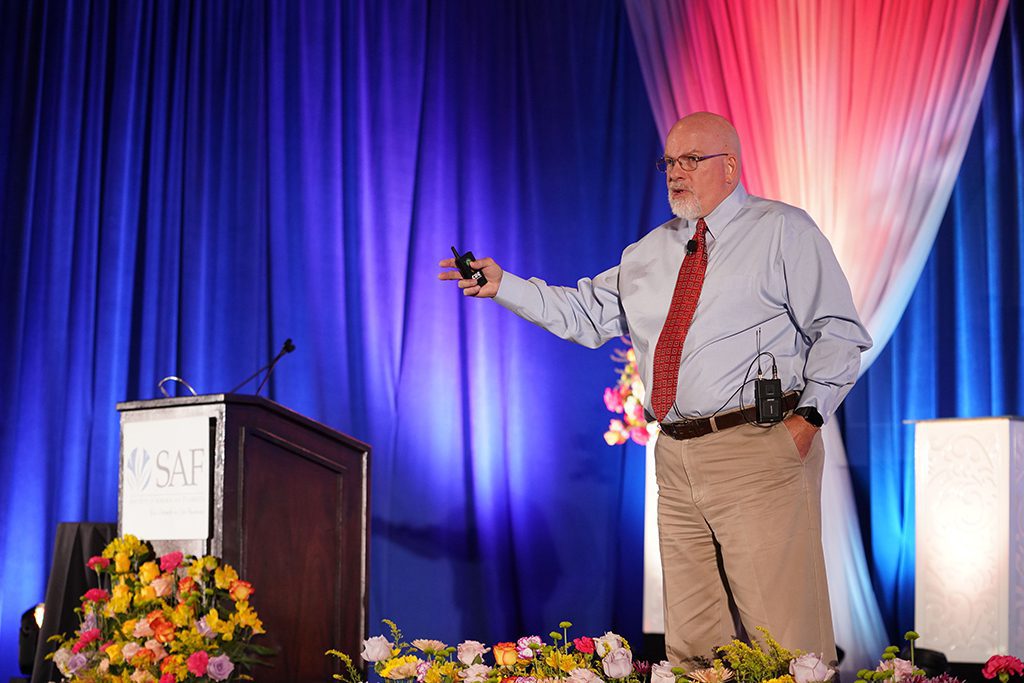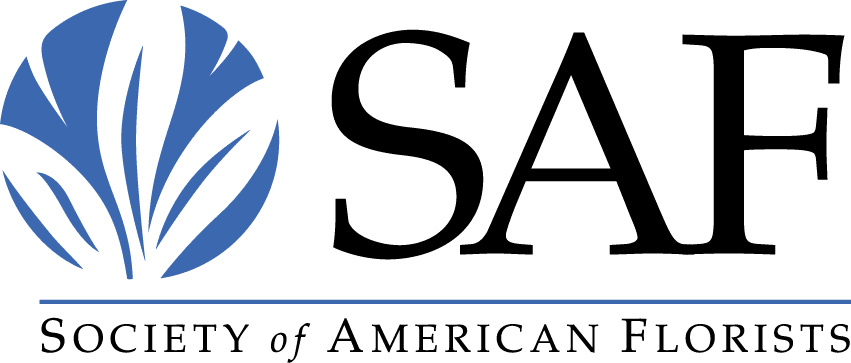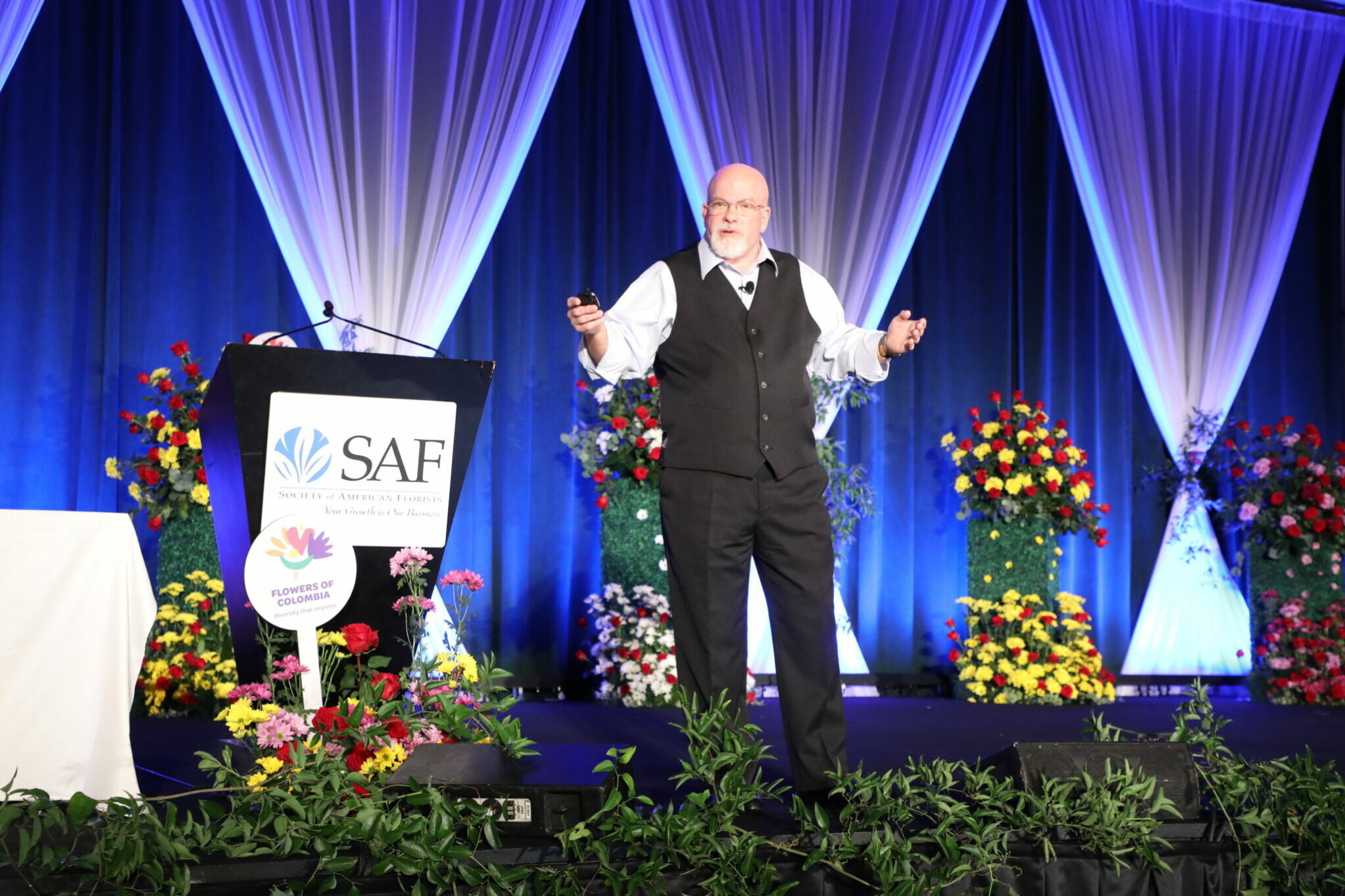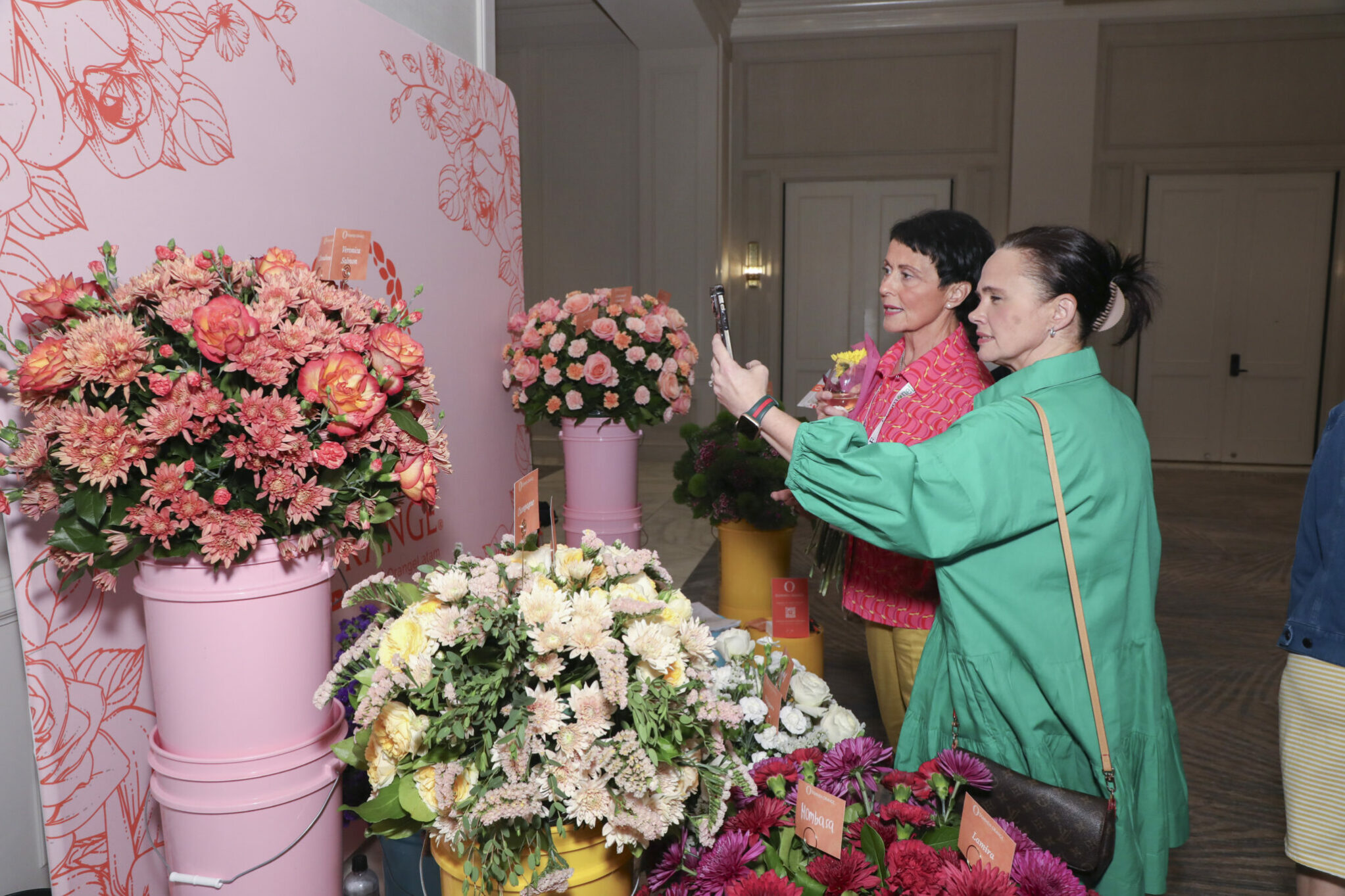 The floral industry will continue to see historic sales and constricted product availability into 2022 and perhaps later, demanding much-needed technological advances, economist Charlie Hall , Ph.D, said Wednesday in his keynote address to attendees at the Society of American Florists’ 136th annual convention in Orlando.
The floral industry will continue to see historic sales and constricted product availability into 2022 and perhaps later, demanding much-needed technological advances, economist Charlie Hall , Ph.D, said Wednesday in his keynote address to attendees at the Society of American Florists’ 136th annual convention in Orlando.
“We are at the top of our game, but there are a lot of challenges, and those challenges have to be met with a willingness to embrace change,” Hall and the Ellison Chair of Floriculture at Texas A&M University, told more than 350 attendees at the kick off breakfast.
Hall also spoke about other pain points, specifically inflation, and predicted that the severe shortages of fresh product and hard goods will cause a bullwhip effect as supply catches up to demand.
He also shared good news: Consumer expenditures on flowers, seeds and potted plants continue to increase, and the United States is on track to import a record number of flower this year.
“Do you realize how unique within the U.S. economy that is right now?” he asked.
That consumer buying trend should continue to hold until at least 2023 because of pent-up demand, Hall says.
Those are encouraging signs amongst other issues plaguing the industry, such as the break down in the global supply chain.
“ broke our supply chain that we spent three decades perfecting,” Hall says.
That break down has put an emphasis on the need for vertical integration and the utilization of technology to give growers, wholesalers and retail florists timely, relevant data on current inventory and the ability to forecast supply needs.
The price increases that the industry has already seen will continue to a lesser degree next year, Hall says. The cost of inputs for growers increased by 8 percent this year, and is expected to increase by 3 to 5 percent next year. This means that growers should be raising their prices by at least 11 percent just to break even, and florists should be adjusting prices, too, as they budget for next year.
By 2023, Hall expects to see inflationary pressure dissipate and the economy starting a slow recovery. Recovery and growth, Hall says, is highly dependent on whether the pandemic is under control.
What can the industry do to capture the momentum and improve the logistics within the industry? Continue to sell the value and the experience of giving and receiving product, and embrace change, Hall says.
“Now is the time to be shouting from the rooftop about the health benefits of flowers,” Hall says. “That’s fuel for our economic engine in the floral industry. We’re in the midst of a health crisis, and we are part of the answer for that crisis.”
SAF CEO Kate Penn also expressed the importance of celebrating success and remaining optimistic despite the challenges of the past 18 months. In her “Floral Industry Snapshot” presentation she applauded attendees for using their entrepreneurial spirit to navigate the unprecedented challenges.
“There’s no question we have our challenges, but there is an enormous sense of optimism in our industry,” Penn says.
She challenged the attendees to keep the momentum and assured them that SAF would be there along the way with support, education and advocacy.
SAF will continue to provide new training through its new Career Connection platform, launched in March, Penn says. SAF will also host more in-person, regional events, as well as digital events. The society is also expanding its local marketing tools to help drive sales and is part of a marketing collaboration with other industry groups. Materials from that collaboration will be released soon, she says.
Another important aspect of SAF’s work is to advocating in Washington D.C. for the issues that affect the floral industry.
“We are doubling down on our efforts to develop relationships with lawmakers and folks at the regulatory agencies to tell them about industry’s needs,” Penn told attendees.
Amanda Jedlinsky is the managing editor of SAF Now.








